ROSCon India: Building a Robotics Community in India
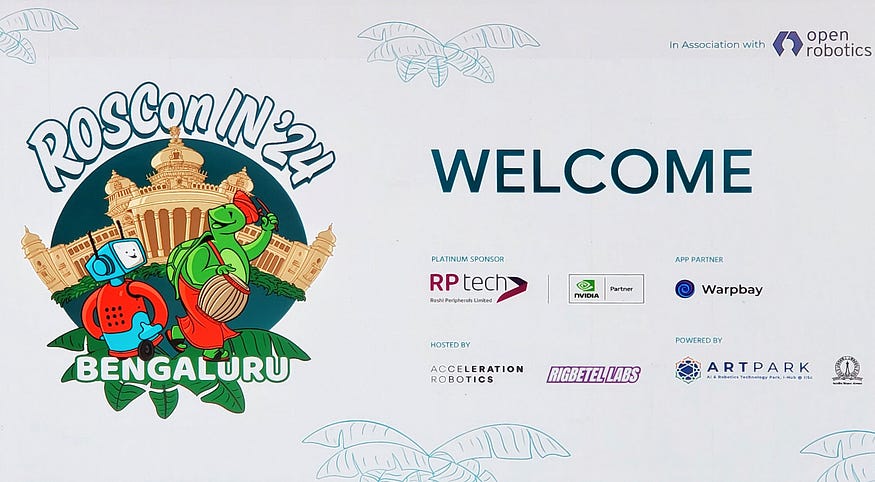
Reflections on ROSCon India and how it’s shaping the future of robotics in India
Attending ROSCon India has become a personal tradition for me. After being part of the first edition in 2023 at IISc Bengaluru, I was thrilled to attend the second edition in December 2024. For those curious, I captured a glimpse of the first ROSCon India on my YouTube channel — watch it here
ROSCon, the global summit for the Robot Operating System (ROS) community, brings together researchers, engineers, startups, and enthusiasts from across the world to share ideas, innovations, and advancements in robotics. Witnessing India’s journey in the ROS ecosystem has been inspiring, and this year was no exception.
The third edition of ROSCon India has already been announced and will take place in Pune this December 2025. Applications for speakers are open, making it a great opportunity for anyone in robotics to participate.
The Power of ROSCon India
ROSCon is more than just a conference. It’s a space where engineers, makers, and dreamers meet.
ROSCon 2024 had a special highlight: Geoffrey Biggs, CTO of Open Robotics — the foundation behind ROS — was present in person. His keynote reminded us how India’s robotics community is now part of the global ROS story.
ROSCon India is organized by RigBetel Labs and Acceleration Robotics, with support from ARTPARK at IISc Bengaluru. Over two days, it showcased a wide range of speakers, panel discussions, and exhibitors working on ROS-based solutions — from industrial automation and agriculture to AI-driven robots and advanced hardware.
More than the talks, ROSCon India is a platform that connects startups, academia, and industry. It’s helping India steadily emerge as a strong contributor to the global ROS community, and ROSCon India is proving to be a catalyst for this growth.
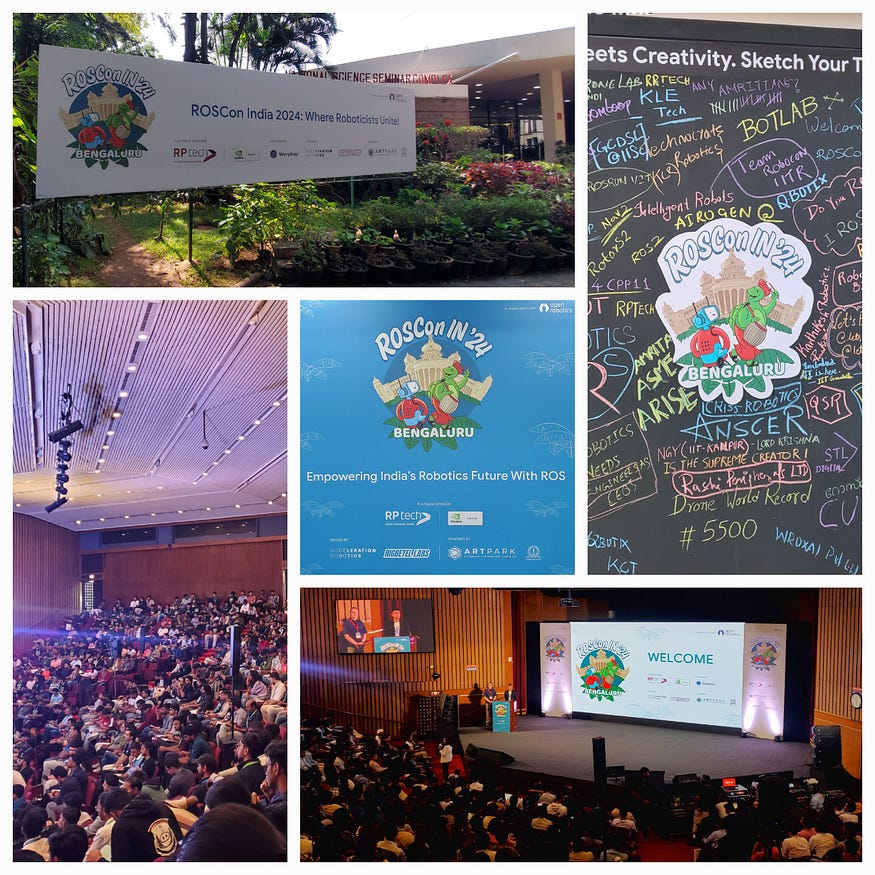
Learning by Doing
The conference started with hands-on workshops that let participants dive into real robotics challenges:
- Twara Robotics taught ROS2 control on mobile robots.
- Strider Robotics explored the Nav2 stack on quadrupeds.
- VayDyn ran a practical session on robotics solutions.
These sessions set the tone for two days of learning, collaboration, and exchange.
Talks That Stood Out
Instead of listing every talk, here are the themes that shaped the event:
🔹 Global Vision & Leadership
- Geoffrey Biggs (Open Robotics) — The state of ROS worldwide
- Yadunund Vijay (Intrinsic) — The future of open-source robotics
- Jigar Halani (NVIDIA) — AI accelerating robotics innovation
🔹 AI & Intelligent Robotics
- RoboGPT by Orangewood (Yuvraj Mehta) — A step toward conversational robotics
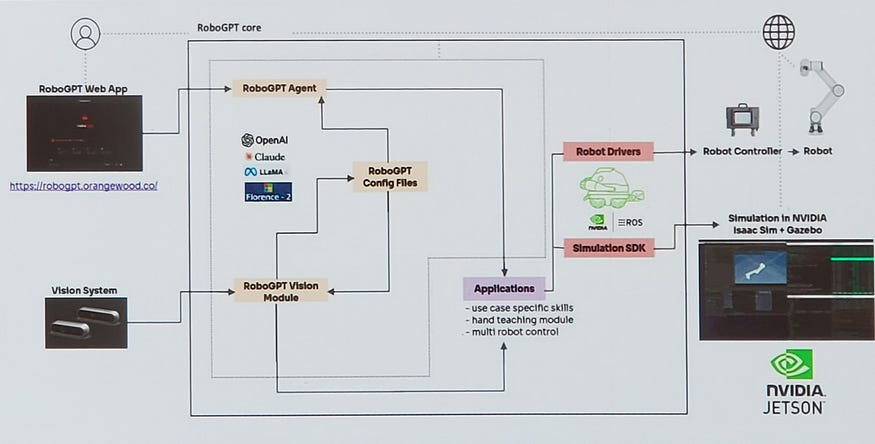
- Drone control with PINNs by Nidhi Choudhary (Eight Vectors) — Smarter aerial autonomy Drone control with Physics-Informed Neural Networks
🔹 Industrial Applications
- Sarvesh Kumar (Universal Robots) — ROS2 ( at UR ) in collaborative robots
- TCS Research- presentations by Anish Dalv on CAN bus communication and CANopen for ROS2 integration, and Somdeb Saha on Grifix ROS, an omnidirectional dual-arm robotic manipulator for retail and inventory management.
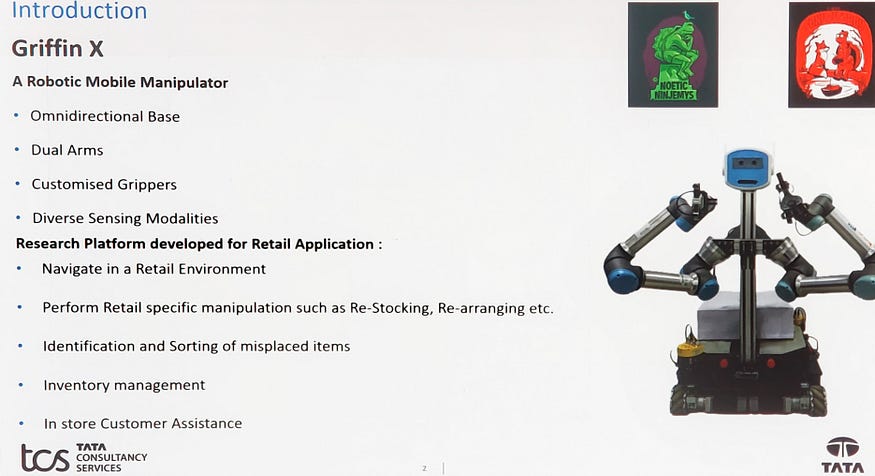
🔹 Infrastructure & Middleware
- Angelo Corsaro (ZettaScale) — Zenoh middleware for robotics
- Meet Gandhi (eInfochips) — addressed the development of consistent ROS2 packages using Debian, reducing duplication and inconsistency in industrial applications
🔹 Future Robotics
- Amritanshu Manu (xTerra Robotics) — Quadruped robots built in India
- Dr. Bharadwaj Amrutur (ARTPARK/IISc) — Wireless + edge compute for next-gen robotics
Alongside the talks, Panel discussions added another layer, with conversations on product–market fit in robotics and ROS growing role in the industry.
The Startup Showcase
For me, the most exciting part was meeting startups and innovators who are shaping India’s robotics future. Some highlights:
- Tanna TechBiz — I met Ankur Lakhani, who showed me their carrier boards for NVIDIA Jetson chipsets. Seeing how far they’ve come since last year was inspiring.
- Bots Overkill — Underwater drones powered by ROS.
- Auto Discovery — I spoke with Kshitij, who is building humanoid robots.
- nMotion (Nawe Robotics) — I had a great chat with Amarnath, founder, about their made-in-India actuators and controllers. Their precision and engineering stood out.
- Vicharak — I met Akshar Vastarpara, the founder, who explained how they built an indigenous single-board computer with custom hardware, kernel, and firmware — the result of years of hard work.
- Peppermint Robotics — Robots for cleaning and maintenance.
- RigBetel Labs — Advanced warehouse and inventory robots.
- Virya — Agricultural robots for large-scale farming.
- Clutter Bot Technologies — Demonstrated traversability mapping with ORB SLAM 3 on ROS2.
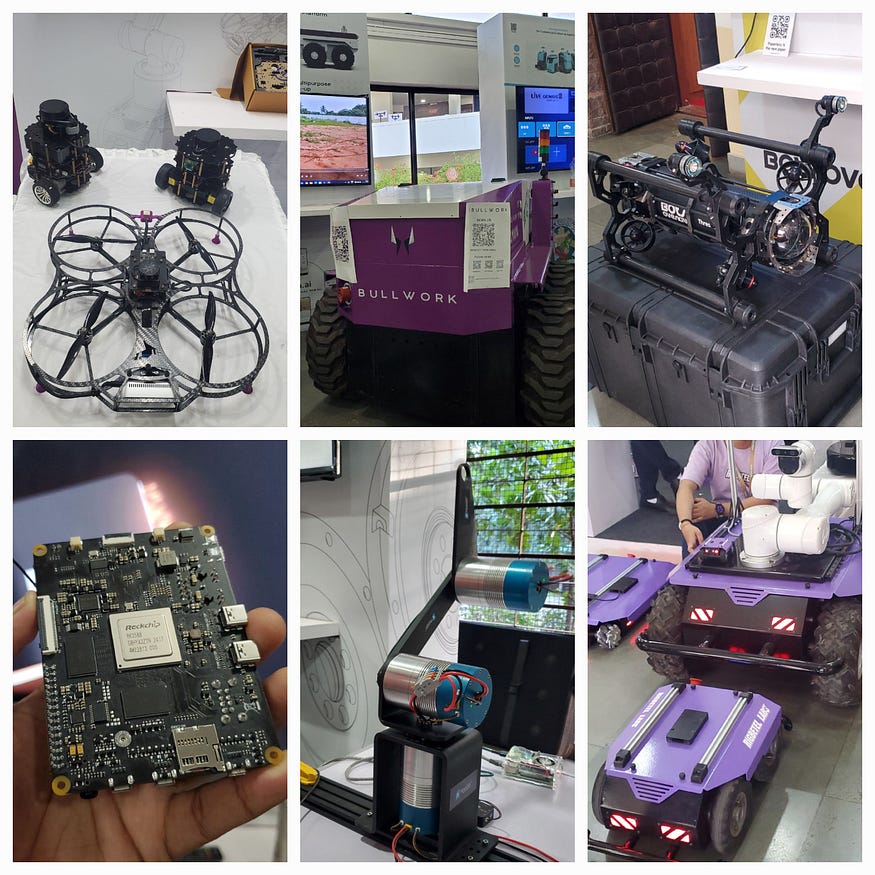
Each startup showed how India is moving from just using robotics to actually building core robotics technologies.
Beyond the Sessions
ROSCon India wasn’t only about robots — it was about people.
I had inspiring conversations with Pranshu, Pallavi, and Shubham, the co-founders of RigBetel Labs. I also interacted with professionals from top companies like Toyota and NVIDIA, as well as enthusiastic students and researchers from across India. The energy of the community was contagious.
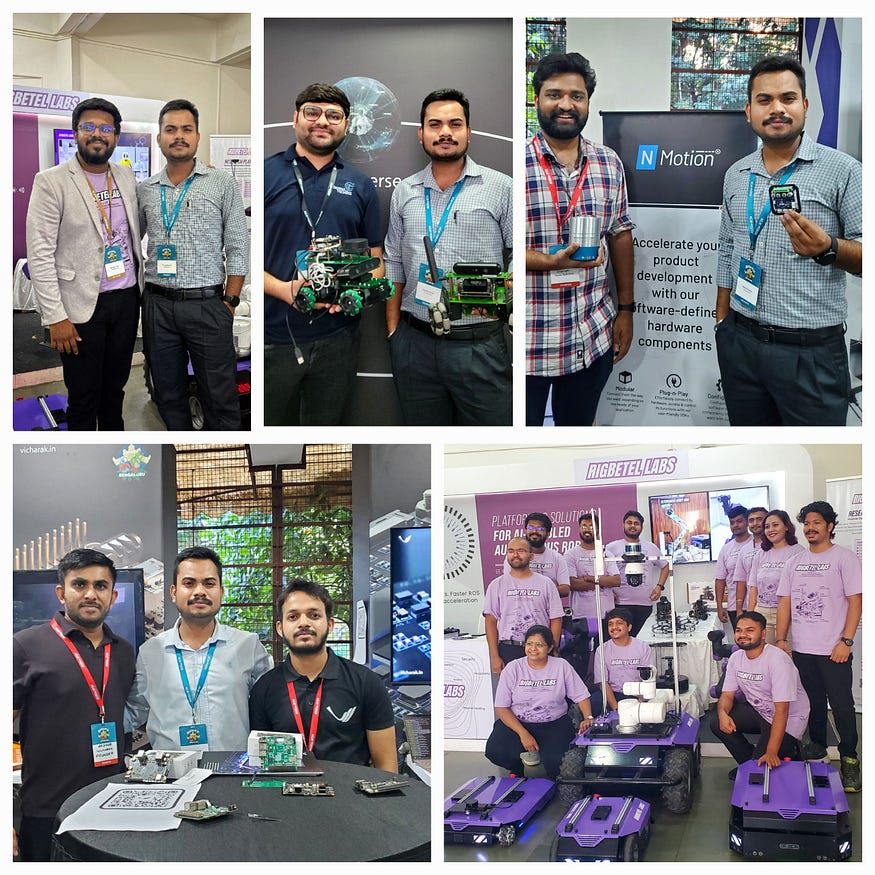
Thanks again to RigBetel Labs, Acceleration Robotics, NVIDIA, and ARTPARK for supporting this ecosystem and making the event possible.
Reflections and Takeaways
Being part of ROSCon India for two consecutive years has been incredibly rewarding. The summit is more than just technical presentations; it is a community-driven event that connects innovators, researchers, and entrepreneurs.
India’s robotics ecosystem is rapidly maturing, with startups, academic institutions, and global companies collectively pushing boundaries and contributing to the open-source ROS ecosystem.
Personally, I left the event inspired by the technical depth, entrepreneurial spirit, and collaborative culture. Conversations with founders, engineers, and students emphasized that innovation is happening across all levels, from cutting-edge research to grassroots startups building world-class robotics products. I was particularly impressed by startups like nMotion and Vicharak, who are tackling core hardware challenges and building indigenous solutions — critical for a self-reliant robotics ecosystem.
Looking Ahead to ROSCon India 2025
The next edition of ROSCon India will be held in Pune in December 2025, marking a shift from Bengaluru. Speaker applications are already open, and I’d encourage researchers, developers, and startups to apply.
ROSCon India is not just a conference — it’s a platform to showcase innovation, meet peers, and contribute to the global robotics community.
I’m excited to see how ROSCon India continues to grow, inspire, and strengthen India’s robotics ecosystem. And I look forward to being part of this journey again.

